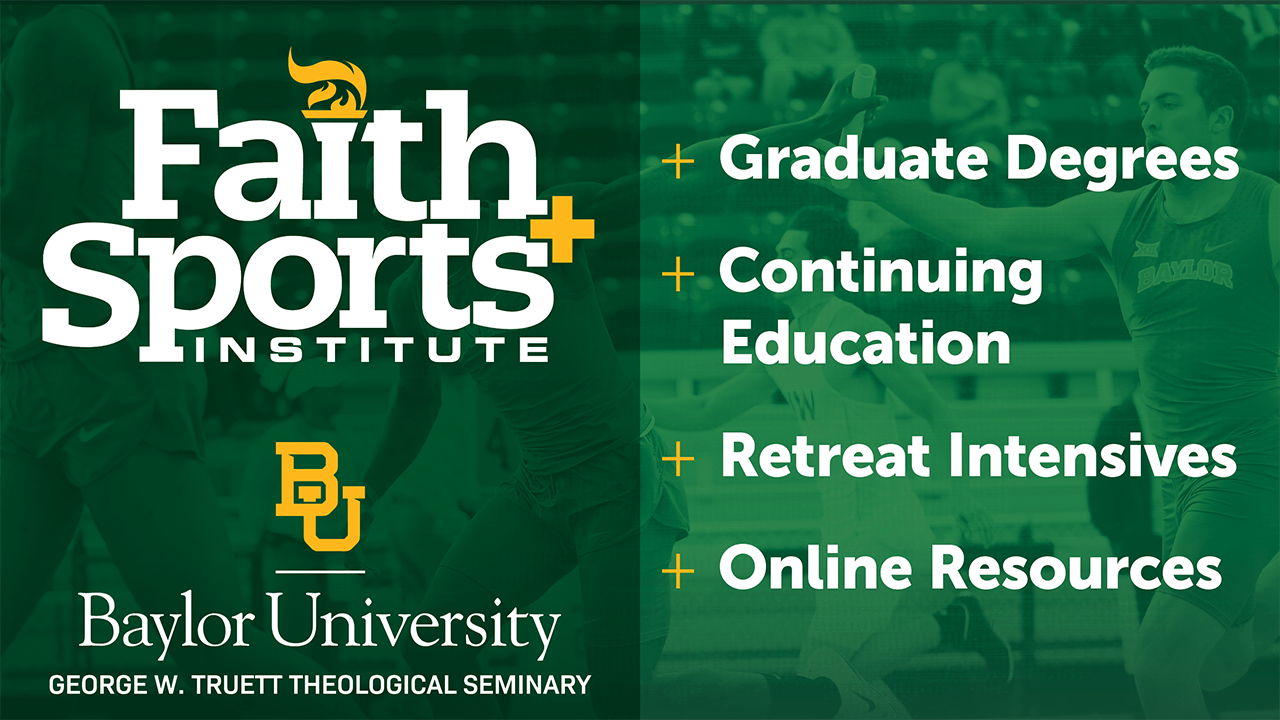Editor’s note: To help Christian sportspeople navigate these uncertain times, we will be publishing a series of posts focused on what it looks like to “Run The Race Well” in a time of coronavirus and quarantine. We will be getting contributions from a variety of perspectives: theologians, philosophers, athletes, coaches, mental health professionals, seminary students, and more. This post comes from former college athlete and Truett Seminary sports ministry student Elizabeth Perkins.
Elizabeth Perkins
Many athletes in our country are grieving the premature end to their seasons and careers. With so much uncertainty in the world right now, how should they—how should you—respond?
It might feel overwhelming or less important to focus on the loss of sports right now. But grief manifests itself differently for everyone. For some, processing the end by processing the whole can provide light during this dark time. If that’s you, what if you wrote a letter to your sport?
Kobe Bryant did it with a poem. Eni Aluko did it with a long essay.
Here are four reasons why you should try it out, too.
Reason #1: Love for the Little Things
And whatever you do, whether in word or deed, do it all in the name of the Lord Jesus, giving thanks to God the Father through him (Colossians 3:17, NIV).
When you personify a game that’s influenced you so much, you behold face to face your sport’s particular culture. The little things, the details, the idiosyncrasies.
For example, when I think about basketball, I hear the squeaks of sneakers on wooden floors and I see a million different rows of rickety gymnasium bleachers. When I think about soccer, I feel grass on my skin, I smell sweat mixed with sunscreen, and I recall the euphoria that only scoring a goal can bring.
Addressing your sport directly allows you to celebrate and focus on your sport’s particular nuances.
Reason #2: Great + Attitude = Gratitude
I will give thanks to you, Lord, with all my heart; I will tell of all your wonderful deeds (Psalm 9:1, NIV).
Writing to your sport cultivates a spirit of thanks.
What has your sport given you? What are you grateful for? Lessons. People. Skills. Character. Travel. Education. Mentors. Community. Health. A space to be yourself. A way to be a kid and just play. An outlet for competition. An escape to forget the world’s worries.
Thank your sport for the good, the bad, the ugly, the great.
Reason #3: Feel Fully
But God said to me, “My grace is sufficient for you, for my power is made perfect in weakness.” Therefore I will boast all the more gladly about my weaknesses, so that Christ’s power may rest on me (2 Corinthians 12:9, NIV).
Grieve and rejoice. Be honest about what hurt and what inspired you.
Joy can coexist with pain. Gratitude can coexist with hurt. Much of life is bittersweet, so the odds are that your sports experience was, too. There is no need to put on rose-colored glasses. You do not have to be afraid of the unlovely. Let your sport know what you didn’t like or thought was unfair. This will make your positive reflections even sweeter.
Redefine courage. Being brave doesn’t mean ignoring hardship or refusing to admit fear. Courage acknowledges pain and presses forward anyway; it confronts fear and keeps going.
Press into your sport, feeling every loss and every joy to the fullest. Be honest with your sport (and with God) about the full scope of your feelings.
Reason #4: Letter-Writing as a Form of Closure
For everything there is a season, a time for every activity under heaven (Ecclesiastes 3:1, ESV).
The idea of reflecting on an athletic career can seem daunting or nearly impossible. But writing a letter focuses the reflection process. It narrows the topic just enough to make the task doable. It will be easier to experience closure when you have taken the time to tell your sport all that it’s meant to you.
Redefine your goodbye through the lens of honesty and gratitude.
And if you’re fortunate enough to know that this is just a temporary goodbye, maybe add a “P.S.” or “see you soon” while you dream of your reunion and future plans together.
About the author: Elizabeth Perkins is in her final semester as an M.Div. student in the Sports Ministry Program at Truett Seminary. She grew up in Michigan and graduated from Hope College with a double major in Psychology and Spanish and a minor in French. While at Hope she played both basketball and soccer. Perkins has taken on a variety of leadership positions and roles at Baylor, working as a Faith & Sport Institute Retreat Mentor in 2018 and as Retreat Program Director in 2019, while also serving as the Volunteer Assistant Coach for Baylor Women’s Soccer. You can follow her on Twitter.







